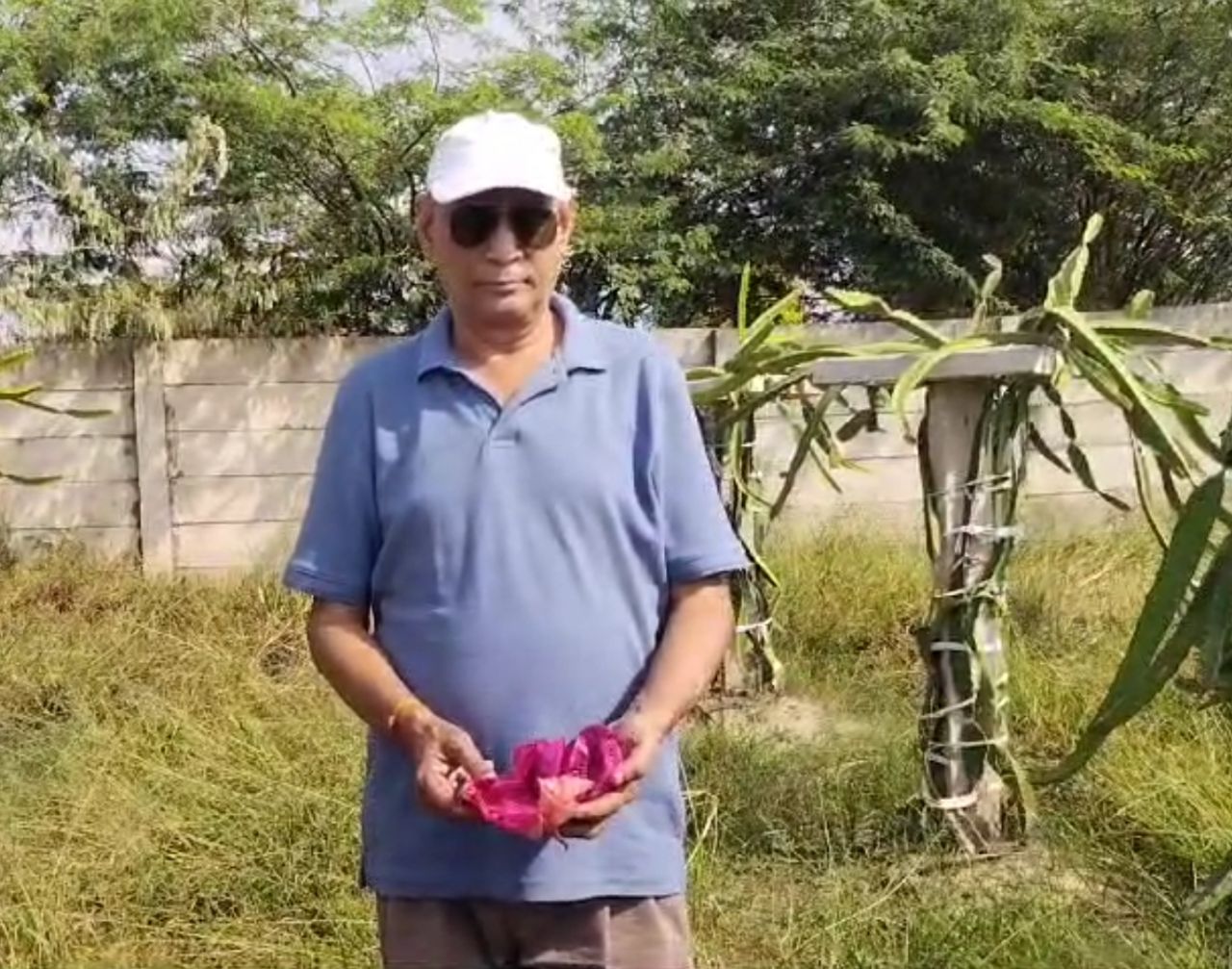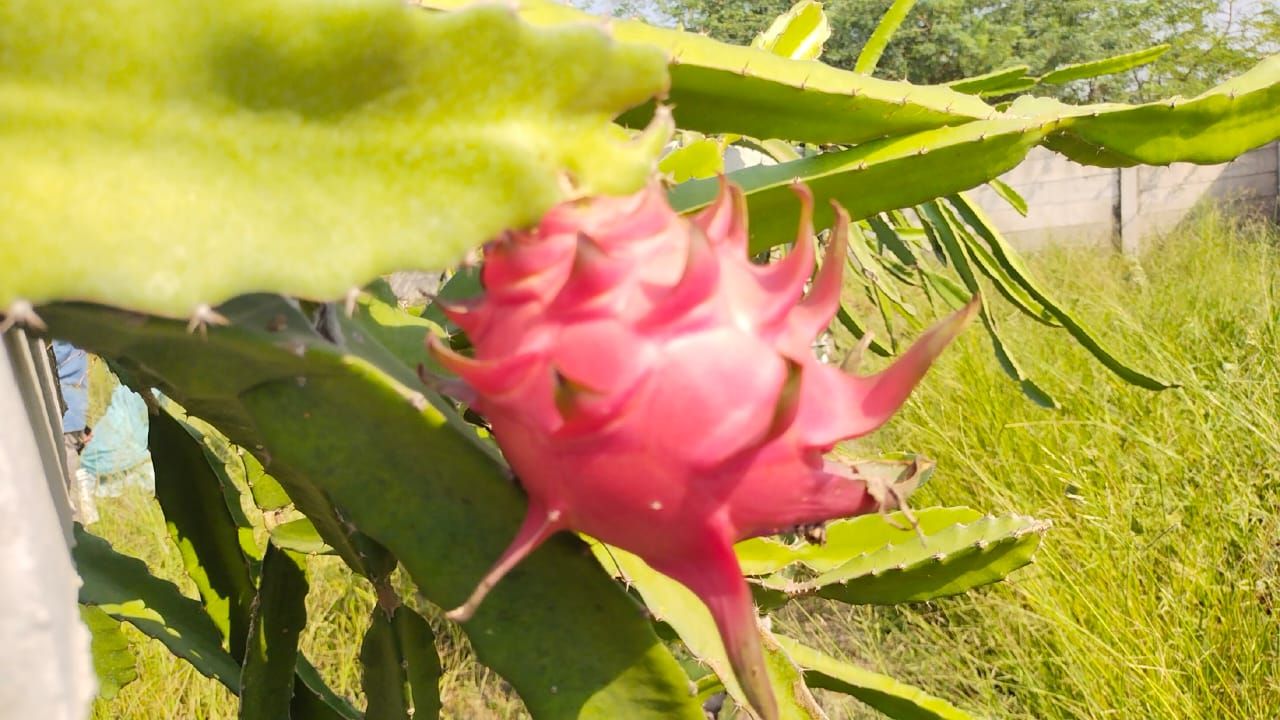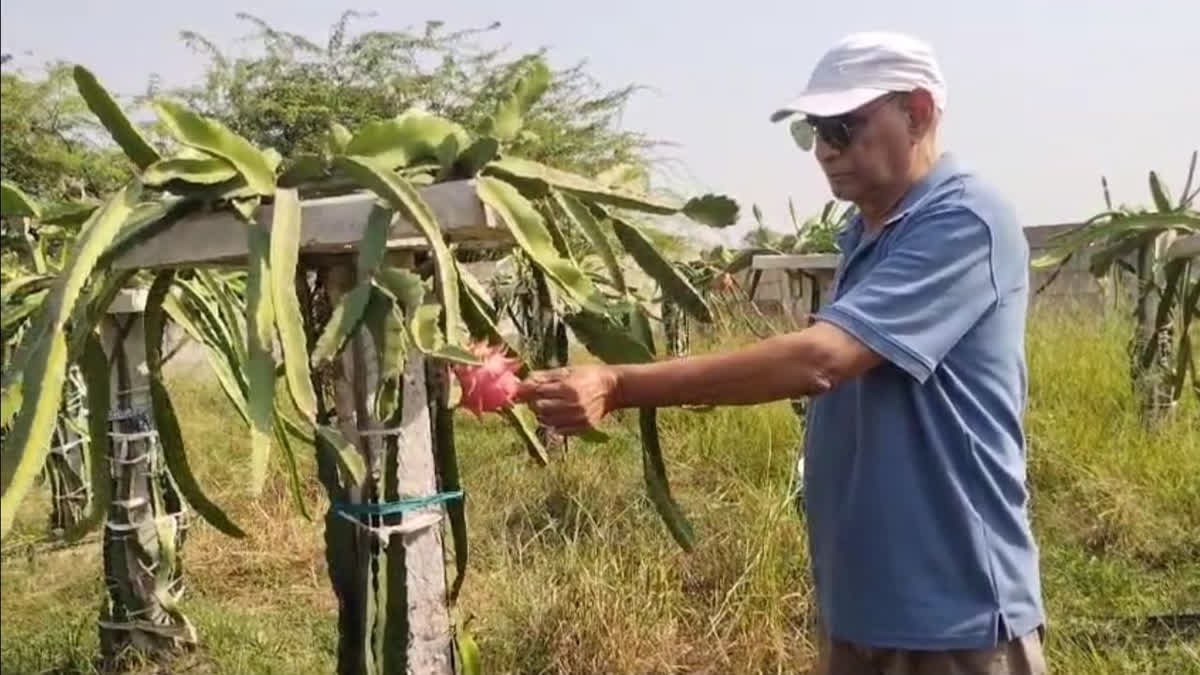Bharatpur: As traditional farming faces challenges of profitability and sustainability, many farmers in India are exploring alternative farming methods to boost their income. In a remarkable departure from traditional farming practices, farmer Nathilal Sharma from Samai village in Deeg district placed his trust in dragon fruit cultivation, and the results are nothing short of extraordinary.
Two years ago, Sharma planted 2,800 dragon fruit plants on his six bighas of land. Now, with his first harvest underway, demand for his produce is coming from as far as Delhi. Local traders have also placed advance orders, especially for the upcoming Diwali festival, giving Sharma confidence that this venture will soon yield substantial profits.

How It All Began
After retiring from the Forest Department, Sharma decided to dedicate himself to farming. However, traditional farming methods did not generate satisfactory income. In search of better options, he turned to dragon fruit farming. Two years ago, he sourced 2,800 dragon fruit plants of the Pink-to-White and Pink-to-Pink varieties from Gujarat and Haryana. He planted them across a nearly 4-acre field and invested in cemented frames to support each plant. The total cost came to approximately ₹1,500 per plant, resulting in an overall investment of ₹40 lakh for the entire plot.
Promising Returns
Sharma shared that the plants have now matured after two years, and the first fruits have begun to ripen. The produce is being sold in Delhi, where demand from traders is increasing. Several local traders have already placed advance orders for Diwali. Each dragon fruit weighs around 800 grams or more. Although the current crop’s fruit size is slightly smaller, Sharma is still able to sell each fruit for ₹100 to ₹150. As the plants mature further—around four to five years—he expects the yield to increase to 25-30 kg per plant. With 2,800 plants, this could amount to a total production of 70 tonnes (70,000 kilograms) per season, generating substantial income in the coming years.
A Long-Term Investment With High Returns
According to Yogesh Sharma, Joint Director of the Agriculture Department (Horticulture), dragon fruit plants are hardy and require minimal maintenance. They do not need excessive fertilizers and are resistant to most diseases. With a one-time investment, these plants can continue to bear fruit for 35 to 40 years.
Janakraj Meena, Deputy Director of the Bharatpur Agriculture Department (Horticulture), explained that dragon fruit plants are available for purchase through the Agriculture Department near Jaipur's Bassi, as well as from Gujarat, Maharashtra, and Haryana, for prices ranging from ₹60 to ₹100 per plant. These plants should be spaced 3x3 meters apart, and about 1,100 plants can be grown per hectare. The total cost for cultivating dragon fruit on one hectare is around ₹15 lakh. The plants begin to bear fruit in the second or third year, with the fruiting season lasting from June to November.

Both Deputy Director Janakraj Meena and Deeg Deputy Director (Horticulture) Ganesh Meena swear by the health benefits of dragon fruit. It acts as a powerful immunity booster, enhancing the body’s natural defense mechanisms. The fruit is also known to contain anti-cancer and anti-aging properties. Its consumption can potentially help in the prevention of diseases like cancer.
A Boon for Progressive Farmers
Ganesh Meena added that this is the first instance of a farmer in the Bharatpur-Deeg district cultivating dragon fruit. The Agriculture Department has provided Sharma with subsidies for a drip irrigation system and solar system, as well as ongoing technical assistance. For farmers who want to move away from traditional farming and earn higher profits, dragon fruit cultivation can prove to be a boon.
Read more:



